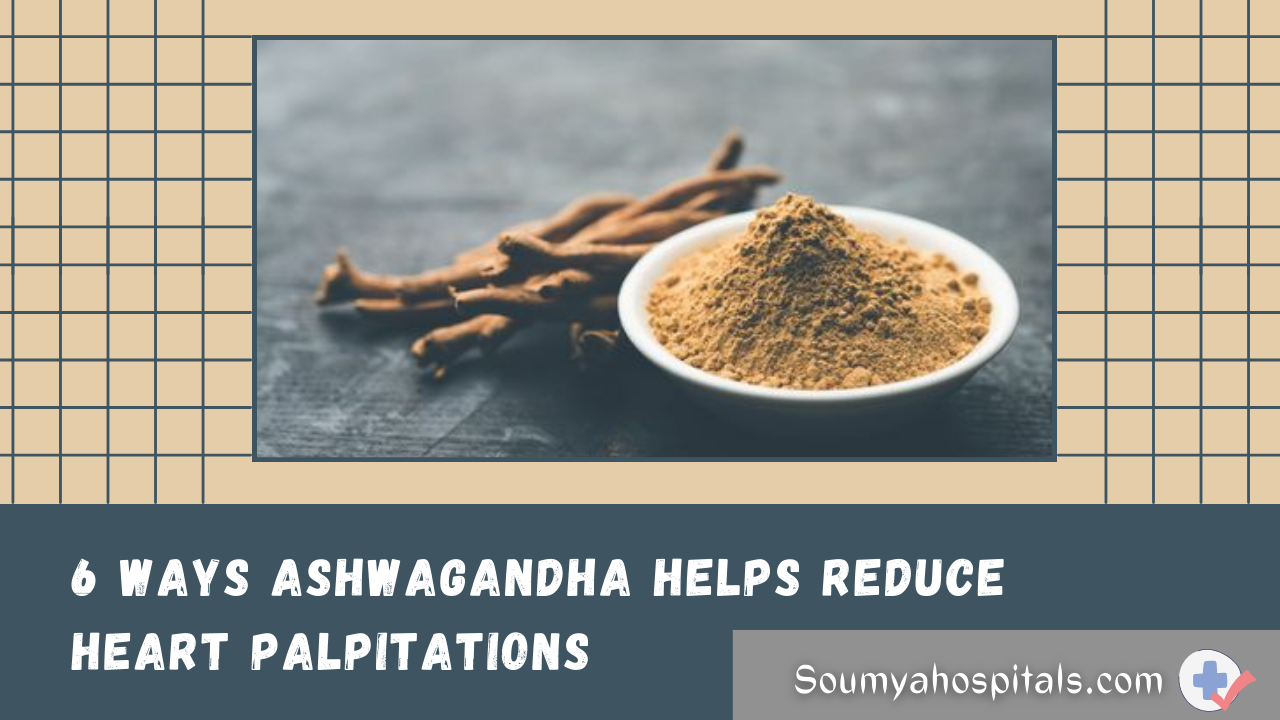Unexpected Heart Palpitations? Your Ashwagandha Might Be the Culprit
Are you experiencing a fluttering or racing sensation in your chest, a feeling that your heart is skipping a beat or pounding erratically? These are common symptoms of heart palpitations, and while often harmless, they can be unsettling. If you’re a regular consumer of ashwagandha, a popular adaptogenic herb lauded for its stress-reducing and health-boosting properties, you might be surprised to learn that it could potentially be contributing to these palpitations. This article dives deep into the connection between ashwagandha and heart palpitations, exploring the potential mechanisms involved, and offering guidance on what to do if you suspect a link.
What is Ashwagandha and Why Is It So Popular?
Ashwagandha ( Withania somnifera), often referred to as Indian ginseng or winter cherry, has been used in Ayurvedic medicine for centuries. Its popularity has surged in recent years, fueled by claims of its ability to:
- Reduce stress and anxiety
- Improve sleep quality
- Boost cognitive function
- Enhance athletic performance
- Lower blood sugar levels
- Support thyroid health
These purported benefits have made ashwagandha a staple in many people’s supplement routines. However, like any supplement, it’s crucial to be aware of potential side effects and interactions.
The Ashwagandha-Heart Palpitations Connection: What’s the Link?
While ashwagandha is generally considered safe for most people, several mechanisms may explain why it could trigger or exacerbate heart palpitations in certain individuals. It’s important to note that the research in this area is still evolving, and more studies are needed to fully understand the connection.
Here are some potential factors to consider:
- Thyroid Hormone Influence: Ashwagandha can influence thyroid hormone levels. An overactive thyroid (hyperthyroidism) can lead to an increased heart rate and palpitations. If you have pre-existing thyroid issues or are taking thyroid medications, ashwagandha could potentially disrupt your thyroid hormone balance.
- Stimulatory Effects: Some studies suggest that ashwagandha may have mild stimulatory effects, similar to caffeine. This could lead to increased heart rate and palpitations in sensitive individuals.
- Blood Pressure Fluctuations: Ashwagandha can, in some individuals, affect blood pressure. Both increases and decreases in blood pressure can trigger palpitations.
- Interactions with Medications: Ashwagandha can interact with certain medications, including those for high blood pressure, diabetes, and thyroid conditions. These interactions could indirectly contribute to palpitations.
- Individual Sensitivity: As with any supplement, some individuals may be more sensitive to ashwagandha than others. Their bodies might react differently, leading to side effects like palpitations.
Identifying If Ashwagandha Is the Culprit
If you’re experiencing heart palpitations and taking ashwagandha, consider these steps to determine if there’s a possible connection:
- Timing: When did the palpitations start? Did they begin around the time you started taking ashwagandha?
- Dosage: Are you taking a high dose of ashwagandha? Higher doses might increase the likelihood of side effects.
- Other Supplements/Medications: Are you taking any other supplements or medications that could also be contributing to palpitations?
- Symptom Severity: Are the palpitations mild and infrequent, or are they frequent and severe?
- Consult a Doctor: The most important step is to consult your doctor. They can assess your symptoms, perform necessary tests (like an ECG), and rule out any underlying medical conditions.
What to Do If You Suspect Ashwagandha Is Causing Palpitations
If you suspect ashwagandha is the culprit, here’s what you can do:
- Stop Taking Ashwagandha: The easiest way to see if the palpitations are related is to stop taking the supplement. Monitor your symptoms to see if they improve.
- Reduce the Dosage: If you don’t want to stop completely, try reducing your dosage to see if that alleviates the palpitations.
- Consult Your Doctor: Discuss your concerns with your doctor. They can provide personalized advice and determine if further investigation is necessary.
- Explore Alternatives: If you were taking ashwagandha for specific health benefits, discuss alternative supplements or lifestyle changes with your doctor or a qualified healthcare professional.
- Maintain a Healthy Lifestyle: Regardless of the cause of your palpitations, prioritize a healthy lifestyle that includes a balanced diet, regular exercise, stress management techniques, and sufficient sleep.
FAQs About Ashwagandha and Heart Palpitations
Here are some frequently asked questions about the relationship between ashwagandha and heart palpitations:
1. Is it common for ashwagandha to cause heart palpitations?
It’s not a widely reported side effect, but it can happen, particularly in individuals who are sensitive to the herb or have underlying health conditions.
2. Should I stop taking ashwagandha immediately if I experience palpitations?
It’s generally recommended to stop taking ashwagandha and consult your doctor to determine the cause and appropriate course of action.
3. Can I take ashwagandha if I have a heart condition?
It’s crucial to consult your doctor before taking ashwagandha if you have any heart conditions. They can assess your individual risk and determine if it’s safe for you.
4. How long does it take for palpitations to resolve after stopping ashwagandha?
The time it takes for palpitations to resolve can vary depending on the individual and the severity of the symptoms. It’s generally recommended to monitor your symptoms and consult your doctor if they persist.
5. Are there any specific ashwagandha preparations that are less likely to cause palpitations?
There’s no conclusive evidence suggesting specific preparations are less likely to cause palpitations. Always start with a low dose and monitor your body’s response. Discuss with a doctor for more information.
Conclusion
While ashwagandha holds promise for various health benefits, it’s essential to be aware of its potential side effects, including heart palpitations. If you experience these symptoms while taking ashwagandha, it’s crucial to investigate the potential link. By consulting your doctor, monitoring your symptoms, and making informed decisions, you can prioritize your heart health and ensure a safe and effective supplement regimen. Remember, this information is for informational purposes only and should not be considered medical advice. Always consult with a qualified healthcare professional for any health concerns.




